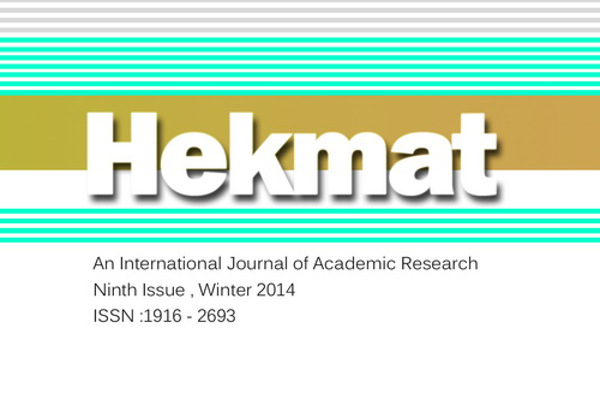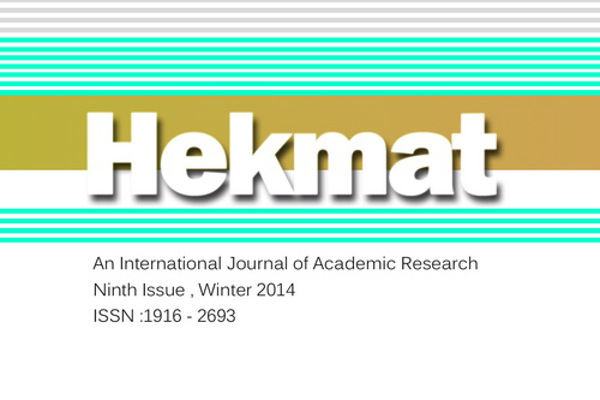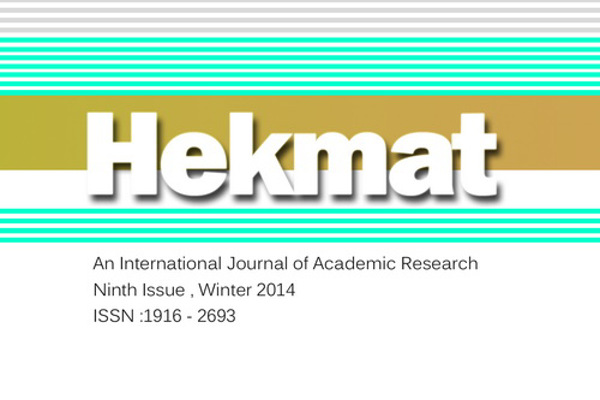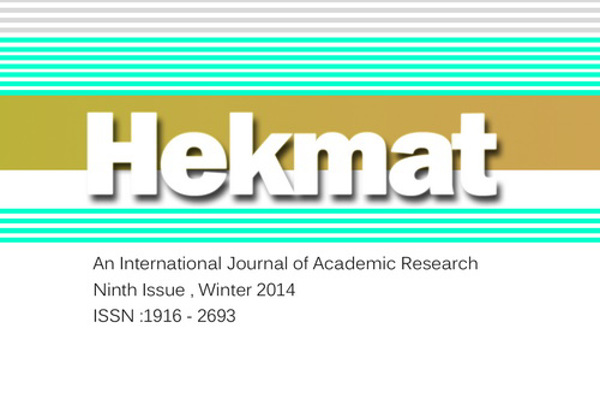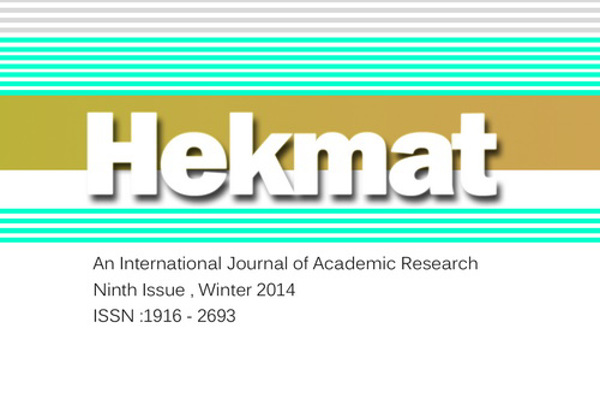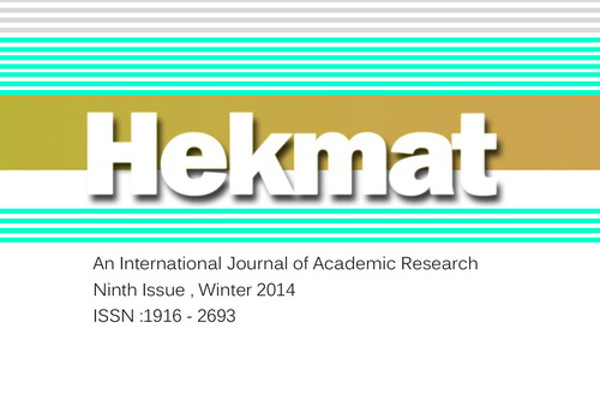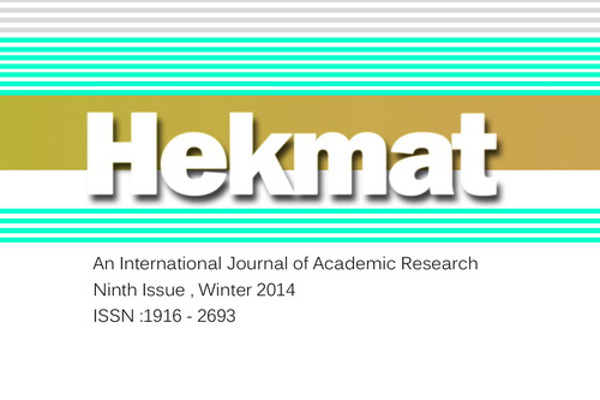A Philanthropic Approach to Tax Management in Imam Ali (AS)’s Tradition / By: Alireza Rahimi Boroujerdi Ph.D
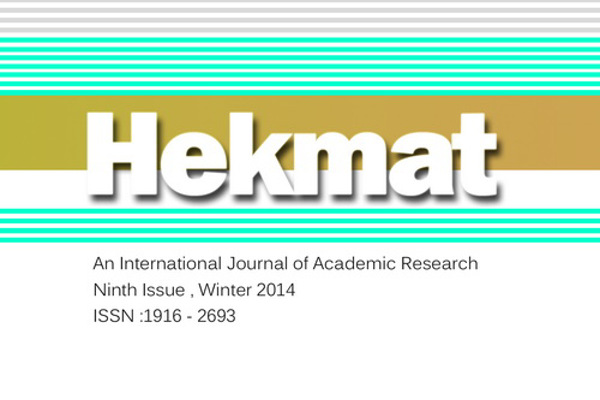
Explication of the problem
Like education, management is applicable merely on human beings. The term management reflects the influence human beings exert or receive. Thus, it is of paramount importance to understand the factors contributing to the formation of human character and to realize the rules governing human behavior in order to found management as a discipline[1].
Much debate is going on about human nature in scientific and philosophical inquiries. Different approaches to human nature have given rise to different theories on the models by which human behavior is explained. What marks the difference between these theories constitutes their vision of the universe, their conception of the creator, their value system, and their theory of knowledge.
Adopting a systematic vision and supposing that the epistemological subsystem in Islam coheres with the Islamic social subsystem, we can presume that the administrative subsystem of the Islamic religion is founded on the pillars of Islamic vision of human nature. Therefore, it is necessary to discuss this vision as a prelude to understanding Islamic principles of management.
I would like to begin with the claim that philanthropy is the fundamental theoretical notion both in the Islamic conception of education and the Islamic vision of administration[2]. The subject matter of both is human being. We should discuss man in organization, organization of man, and human organization. The principle of philanthropy reflecting the fundamental notion of God-centeredness acknowledges freedom for man as an intrinsic right. This principle stems from two philosophical positions in theology as well as in our picture of human nature.
So for as theology is concerned, we can say Islam emphasizes the notion of monotheism. In regard to the Islamic picture of human nature, we can figure out that human intrinsic freedom stems from his exclusive capability of reasoning.
Islamic philanthropy rests on God-centeredness. In Islamic view, human beings search for God by nature. Their ultimate perfection is realized through their proximity to God. Human beings can reach the highest possible rank. Still, they remain creatures. Therefore, they need to develop towards perfection. Human perfection involves human reason and freedom. In order to stand for the responsibilities freedom requires, human reason must develop.
The principle of philanthropy, as a fundamental hypothesis in management and education, is comprised of the following elements:
- Human dignity and freedom bestowed on man by God and built in his nature;
- Both behavior and the theories constituting the content of thought must protect human dignity, freedom, and value both in education and management. They must not clash with the rank given to man exclusively by God;
- Organizations must be formed with humanitarian frames and structure. As the most important element of an organization, human beings must enjoy freedom of choice as well as the possibility of spiritual elevation and the right to dignity;
- Both the trainer and the trainee, the boss and the folk, are imperfect human beings in need of advancement but equipped with the faculty to understand God, discern good, and keep tranquil. The main objective in life is to attain proximity to God via climbing the spiritual ladder through developing the faculty of reason in order to achieve divinity and become capable of taking responsibility and making free choice.
Our main objective of this paper is not to prove that philanthropy is recognized in Islam. To take it for granted that philanthropy is recognized in Islam, it suffices to take a glance at Imam Ali’s sayings. We shall focus on those things that highlight the Imam’s attaching importance to philanthropy. It goes without saying that the subject matter can be studied from so many different angles. In this paper, we shall confine our discussion to sayings concerning economic management. In other words, we shall see that precepts issued by Imam Ali as the leader of Muslim community in regard to tax collection reflects an especial mentality He retained when He administered human society and managed the activities pertinent to tax collection. In this way, He employed everything and every move He had in the course of training human beings and educating society.
To treat the problem, we shall concentrate on the subject matter of tax as one aspect of economic management of human society. We shall mention a number of textual evidences proving that philanthropy constitutes the axis of management in Imam Ali’s model. We shall try to formalize suitable concepts and express them in the form of functional propositions.
Some fundamental propositions
1. Tax as the main source of government income
Tax constitutes one of the most important items in government income. In modern economics, while classifying incomes in government budget accounts, tax come next to two other income resources; credit papers and other incomes. In some countries, where budget accounts control the major resources of society, the income made by selling resources or by taking added value in the aforementioned transaction is classified under government revenue. The tax on public or private benefit from this revenue is returned to the cycle of government income. In short, tax must constitute the major part of government’s revenue[3]. Policymaking in regard to taxation constitutes a part of monetary policy modern states are responsible for according to macroeconomics. The effects of taxation on national income are analyzed.
2. The purpose of tax collection: realization of developmental plans
What is the nature of tax? What items must be taxed? Tax incidence[4] is a topic very important in tax literature in analysis of public sector economics. Among important subject matters discussed in tax literature in economics are different types of tax, direct/indirect tax, tax on market subsidy, income tax, net profit tax, value-added tax, consumption tax, property tax, inheritance tax, and the like. Tax incidence and the analysis of the relationship between tax and public equilibrium models, growth and development have been discussed from the early days of economics as a discipline by its founding fathers such as Thomas Hobbes (1615), Thomas Mann (1664), Adam Smith, David Ricardo, and margin a lists such as Weichsel, Marshall, Edge Worth, Robinson, and Chamberlin. These theories concern aspects of human life in relation to the positive or negative effects of taxes. We mean by “positive” and “negative” effects those that are so evaluated on the basis of normative concepts such as justice and equality. So, the criteria by which an act or policy is assayed are the fundamental fixed values Islamic culture recognizes. These values are mind-independent and universally applicable to all times and locations. The impact of a policy or act is evaluated on this scale. In other words, like chemical medicine, economic policies may have positive impacts on some aspects of social life and negative impacts on some others. We gather from sayings of Imam Ali (be peace upon Him) that the main objective of tax collection by a Muslim ruler must be to enable the government to undertake developmental responsibilities hence a model of taxation must be adopted that leaves no negative effects. As Imam (AS) puts it, tax is one of the pillars of people's livelihood. So, no measure taken by the government must put it in danger “since” He says,
“all people are considered as the beneficiaries of tax.”
Accordingly, in the society ruled by Imam Ali as well as a society He approves of, taxation must be viewed as a sort of public livelihood and a means for education of taxpayers and of all who benefit from taxes rather than a source for government income. This is illustrated in His letter to Malik Ashtar where He describes the improvement in taxation system as the improvement of the life of everybody particularly the taxpayers:
“Scrutinize the affairs pertinent to taxation in a manner that leads to its improvement since the improvement of taxation system and the agents involved in it leads to the improvement of all, and public affairs cannot be well organized unless tax agents’ affairs are well organized.
This saying by Imam Ali indicates that the main objective of tax collection must be the macro management of social life. It is, therefore, necessary to scrutinize how tax collection proceeds. The letter to Malik shows that the most important responsibility of a ruler is tax collection the three objectives of which are improvement of public life, development of cities, and founding for the establishment of security and defense.
3. The betterment of people's livelihood as the main objective of development
It is important to note here that Nahj al Balaghah is not a book on economics. So, it does not discuss in detail how tax collection must be organized or how tax incidence must be studied. About the latter topic, it only refers to agricultural goods as subject of taxation. It is good to notice here that the society which Imam Ali ruled depended on agriculture only, and therefore, the agricultural sector was the only subject of taxation. The other sectors such as services in modern terminology were not productive hence no tax for them.
Naturally, when He speaks about the methods of tax collection, He concentrates on ethical issues only. We need to study history in order to realize what tax collection meant at the time. As a matter of fact, tax collection was a very simple procedure incomparable to what we understand now from this term. Therefore, the manuals concerning tax collection at the time mostly contained ethical advice. In Nahj al Balaghah, too, moral constraints laid on the activities of tax collectors are explained. From them, we can gather that, in Imam Ali’s administration model, the fundamental principle is philanthropy.
Tasks pertinent to tax collection are not confined in the activity of collecting. Negligence of moral and educational aspects of taxation may harm society. The main objective of taxation is said to be the improvement of people's life. Taxpayers and those who benefit from taxes collected should be viewed when responsibilities concerning tax collection are defined.
As a moral principle governing economic policies, tax collection must aim at three objectives: the betterment of people's livelihood particularly that of taxpayers, the management of economic affairs of the fraction of the society that depends on taxation, and the establishment of security. If any of these three objectives are left unrealized, the economic model must be considered as defective.
You must concentrate on development more than you concentrate on tax collection because you cannot continue collecting taxes unless you pay sufficient attention to development. Whosoever asks people to pay tax without helping them enhance their life nearly destroys societies and people and will not be able to rule but for a short time.
4. The Islamic government’s responsibility for the betterment of people’s livelihood and for development
As a prelude, we need to invoke the difference between drive and obligation. Drive is a kind of cause of action while obligation is a kind of reason for action. A ruler or government (or the public sector in modern terminology) takes steps in the direction of development, for instance, because of a drive. In the meantime, it is charged with an obligation to take those steps. The obligation is based on rationality and free choice.
Having illustrated the difference between drive and obligation, we can now infer from the sayings of Imam Ali that even if a Muslim ruler fails to have any drive, he is still charged with the responsibility and obligation to care for development. This is his social and political responsibility. All policies and executive procedures must be based on this. Hence, governments must pave the way for development and eradicate all obstacles on the way. The foundational principle in social and economic relations in Islamic society is justice, equality, freedom, and dignity for citizens. Consequently, the public sector must pursue plans for development as a matter of obligation. Tax collection must practically imply efforts for development. Measures taken by government in this field must carry a particular message for citizens; economic policies of the state aim at the betterment of their life. Otherwise, public opinion will see tax as tribute and the state as a bunch of bandits. This mentality contributes to loss of creativity on the part of the private sector, decline of efficiency on the part of the government, and overall damage to the nation’s wealth.
5. Development increases government’s revenue from tax
There is an important reference in the aforementioned saying of Imam Ali to the correlation between development and taxation. As taxation must be seen as a means of development, development must also be seen as the ground for an increase in the revenue of the state from tax. The general satisfaction of the public is, in itself, a public good. When it is the result of the comfort brought about by state-directed development, it functions as a psychological drive persuading people to see themselves in debt to the state. This facilitates their taxpaying. It also overcomes the incentives for tax evasion. So, negligence on the part of tax collectors of this aspect amounts to heavy damages to economy as well as citizens’ overall psychological satisfaction. We can say that the degeneration of cities, public anger, and unrest would be the final outcome.
[1]. Jafari, Mohammad Taqi & Dr. Baqeri et al. , 1378, p.105.
[2]. Rahimi, Ali Reza, Tarbyat Basiratgara, Imam Sadeq University Press, 1389, Chapter 5.
[3]. Imam Ali, Nahj al Balaghah, the Letter to Malik Ashtar.
[4]. Al Nahj Journal, no. 31.


